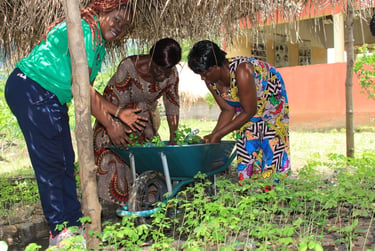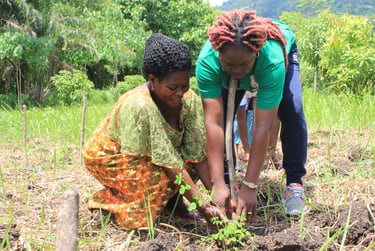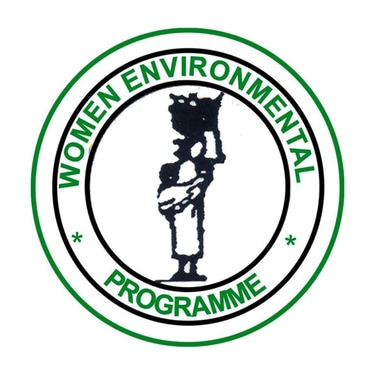Support for women farmers in the commune of Agou 1, Togo, to enhance their socioeconomic well-being and improve food systems
AGROECOLOGY
11/18/20242 min read
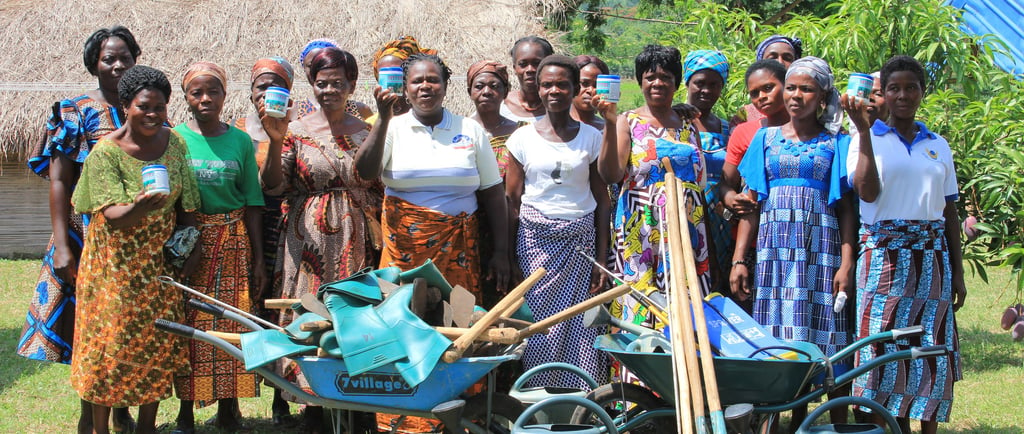

Geographical Context and Overview of the Project
Implemented in the Plateaux Region of Togo, the project “Support for Women Farmers in the Commune of Agou 1” directly benefited 25 women from the Kekeliva cooperative. The initiative was carried out with the support of the International Organisation of La Francophonie (OIF), reflecting a shared commitment to gender equity and sustainable rural development.
Context and Rationale
The project was developed in response to growing environmental challenges in the region, including land degradation and the effects of climate change, which have severely impacted agricultural yields. These issues disproportionately affect women, exacerbating poverty and reinforcing structural gender inequalities in rural communities.
Objectives
The project sought to improve the socioeconomic situation of women farmers by promoting sustainable agricultural practices, enhancing food security, and building key competencies in agroecology, entrepreneurship, and functional literacy. It also aimed to foster women’s leadership and increase their participation in the management of income-generating activities.
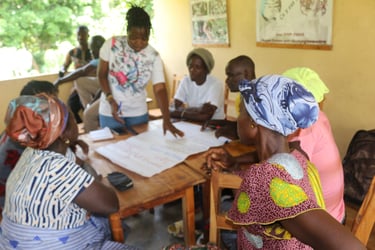

Key Achievements
Beneficiaries received training in agroecological techniques to scale up moringa production, along with modules on gender equality and functional literacy. The initiative contributed to a 300% increase in moringa yields and a 50% rise in women’s incomes. It also led to the formal establishment of the Kekeliva cooperative. In addition, literacy sessions were held, helping participants strengthen their reading and writing skills for everyday communication and better management of their economic activities.
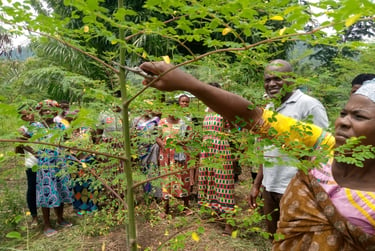

Lessons Learned
The project highlighted that combining agroecological practices with functional literacy significantly strengthens farm management and promotes the empowerment of women farmers.
Testimonies
Ms. Essi Klutsè, a project beneficiary and secretary of the Kekeliva cooperative, shared:
“Literacy has truly been beneficial to us. Before, none of us gathered here could read or write. But thanks to the teacher’s method, I can now read everything written on the board.”
Future Outlook
Looking ahead, WEP-TOGO plans to continue supporting the Kekeliva cooperative to ensure the sustainability of its activities. The organization is also calling on partners to help scale the project to other vulnerable communities.
The project “Support for Women Farmers in the Commune of Agou 1 to Improve Their Socioeconomic and Food Security Conditions” thus represents a significant step forward in the empowerment of rural women, while contributing to the food security of their families.
